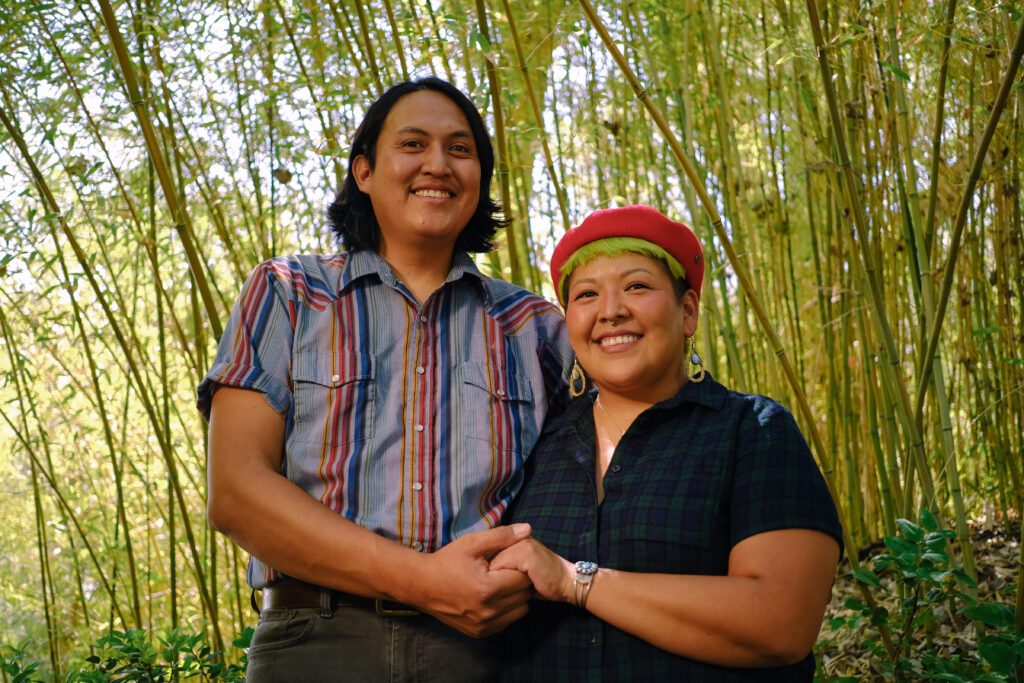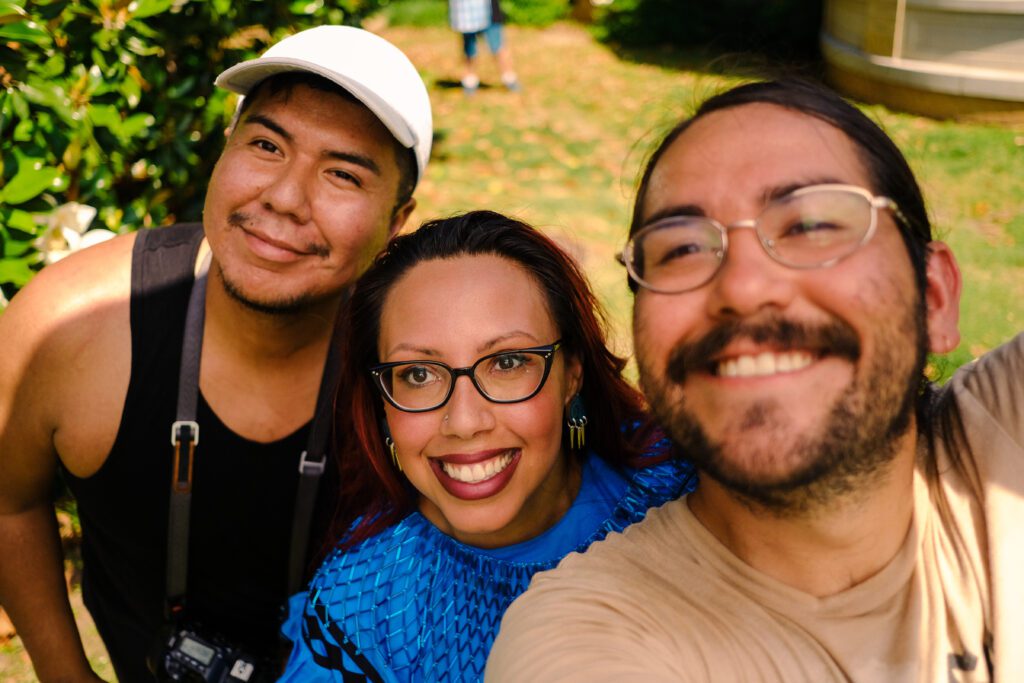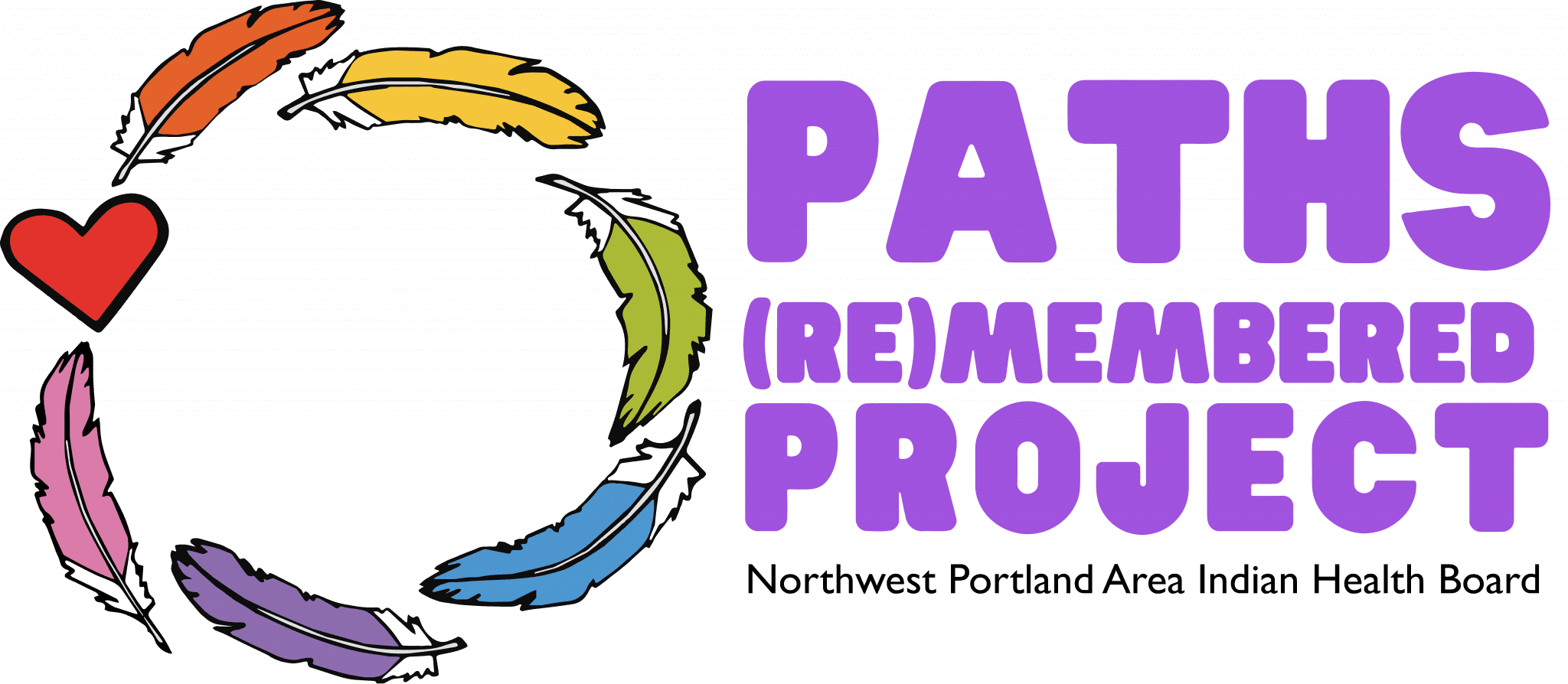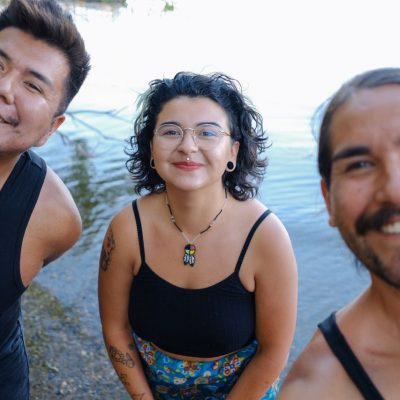The Making of the Indigiqueer Joy Campaign
With photographers Evan Atwood and Nate Lemuel
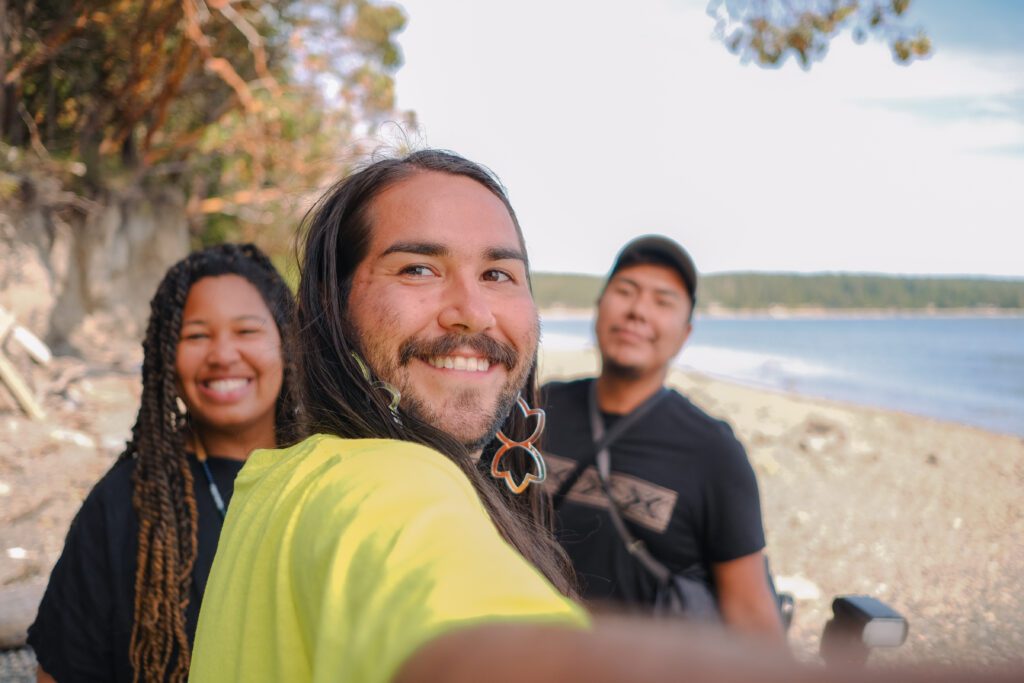
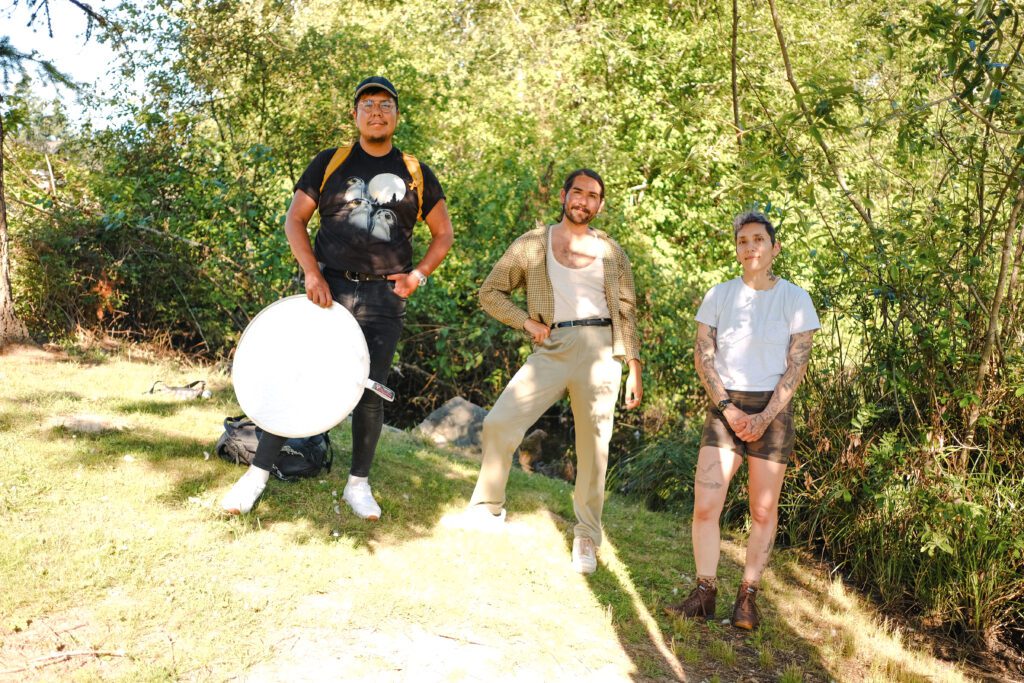
So you set off on this journey to document Indigiqueer joy beginning in New Mexico, then traveling to Oklahoma, Minnesota, and Washington state. What were you thinking about before the trip? What intentions had you set for yourselves and for the experience?
Evan: I remember getting a call from you all in summer 2021. I was in a little coffee shop. You asked if I’d be interested in a photo tour documenting Indigenous queers experiencing joy. Without hesitation, I was like, Yes, absolutely. It felt so synchronous. It’s been my intention for years to challenge binary gender, to uplift and empower marginalized voices, bodies, and spirits. I’m always working to offer the community around me the gifts I feel I have—years of film and photo experience. My intention on that trip was to uplift and empower and celebrate each person, to come with an open heart, to meet everyone exactly where they’re at. I felt ready to receive and ready to give. Like to give hugs—consensually, outside, because it was still COVID.
Nate: After Evan asked me to be part of the trip, we took a hike, and I was thinking about the possibilities of the trip–connecting with other queer folks on and off reservations across the states. It was during the pandemic. I’d just moved away from Shiprock, where I’m from, and I felt ready to ask what brought folks joy, to provide space for them to express that through the lens of the camera. I wanted to ask, What does joy mean? What does Indigiqueer mean? How are we all in this together and learning together?
How did the trip itself compare with your expectations?
Evan: Well, the longest that Nate and I had been with each other before this trip was a day. And we were planning to spend two and half weeks in cars and planes together. I remember feeling a little tingly, a little nervous beforehand. I remember thinking, What if my mental health takes a turn and I have a hard time? What if Nate and I have conflict? But I never felt hesitation. And those things didn’t come up. It felt comfortable, fun. It was such a gift to call the trip work. I woke up every morning, and I was just grateful for breath, grateful for that sun coming up, grateful for my lungs to be working, that I have feet that are walking, and that we’re able to meet and laugh together with these Indiqiqueer folks across the country. Desert to plains to wetlands to coast, back to desert. We laughed so much on this trip. I approached every person thinking about what we could offer them—What can we do for you? Do you need business headshots? In Albuquerque, we got to make a music video. The trip filled my heart. I don’t have words.
Nate: Yeah, before I went on this trip, I visited my grandmother and grandfather in New Mexico. My grandmother wrote out thoughts for the trip on paper for me. She wrote that things would be different after. That the way I would look at myself when I returned would be different. That echoed through my head before the trip. I created new expectations for myself on this trip and grew my friendship with Evan. I found myself embracing little things, small ways of uplifting and helping one another. From KP to Rivianna to Fabian, meeting and getting to know each other, our reservations, the foundations we come from, the traditions we uphold—I’ll always remember it.
Evan: I just want to add how the timing felt so perfect, so synchronous, throughout. Like we got to KP’s and it was their birthday, so we got to celebrate with a photo walk. And up in Minnesota, it was 10 PM and the sun was still shining over the horizon. We entered Oklahoma, and there were so many wind pillars I lost count. It was so amazing. I remember we pulled over at a rest stop on our way to Minnesota. We were two hours out. We started taking pictures of one another. We were like, Let’s go into this field of flowers. And we took some tulle with us, and we were just being fabulous by the freeway.
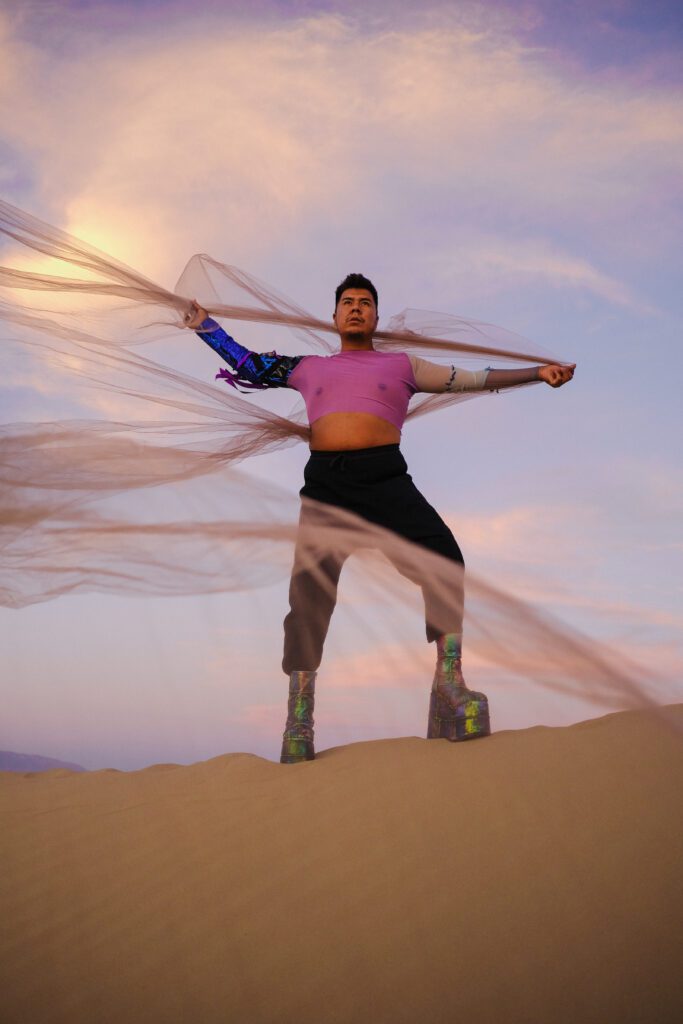
Nate: Oh yeah, that was Iowa. The cornfields.
How did your understandings of Indigiqueer joy shift on this journey?
Evan: I entered with my own understanding of queerness, which felt very singular. Meeting everyone, having that intention to approach everyone with open arms, I felt like there were no barriers to our queerness. Queerness became more expansive. It broadened my perspective of what is queer—everyone and everything was queer.
Nate: I felt a shift toward this place of admiration for Native communities. I saw how much everyone appreciated life—from the waters we walked to the weather to the land. Asking so many different Indigiqueer people how they’re connected to their environments, seeing them celebrating their lives, being present together, it really set in my mind. I grew up with old cameras lying around, and as I get older I want to love myself more, understand my community more, be there as a queer person and as an artist, use those gifts to connect to my ancestors, my grandparents, my community. This trip helped me see that vision more clearly and feel so grateful for our people.
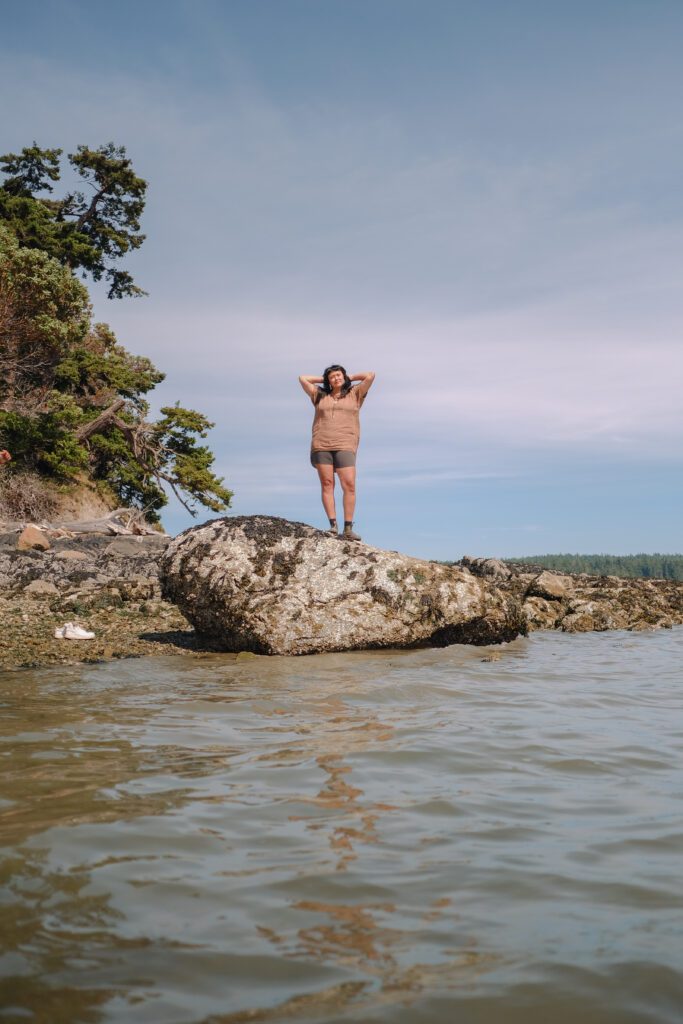
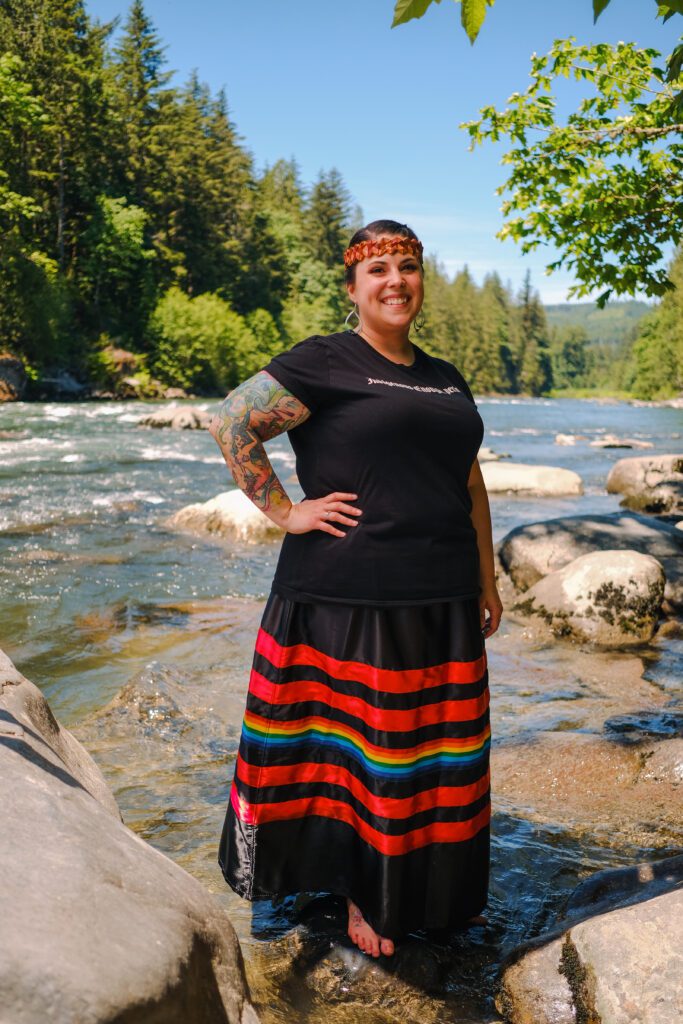
Evan: I definitely second that. I guess understanding queerness differently after this trip also unlocked a new level of compassion for myself and my community. It took me coming back to Portland, returning home, to really process what I received on the trip. I felt very whole afterwards. It felt so wonderful to meet people, these wonderful humans, and to leave each other better than we met each other. Like Nate said, I’m going to grow with this trip. Reflecting on it, I also think about the people we almost met–there was an older drag queen in Tulsa, Oklahoma, who was out of town when we were there. I want to do this again with more of our older community members. It’s such a beautiful moment to have somebody look in the back of a camera, and be like, That’s me. To reflect people back to themselves, unlocking compassion for themselves, letting people know they are so beautiful and so loved.
